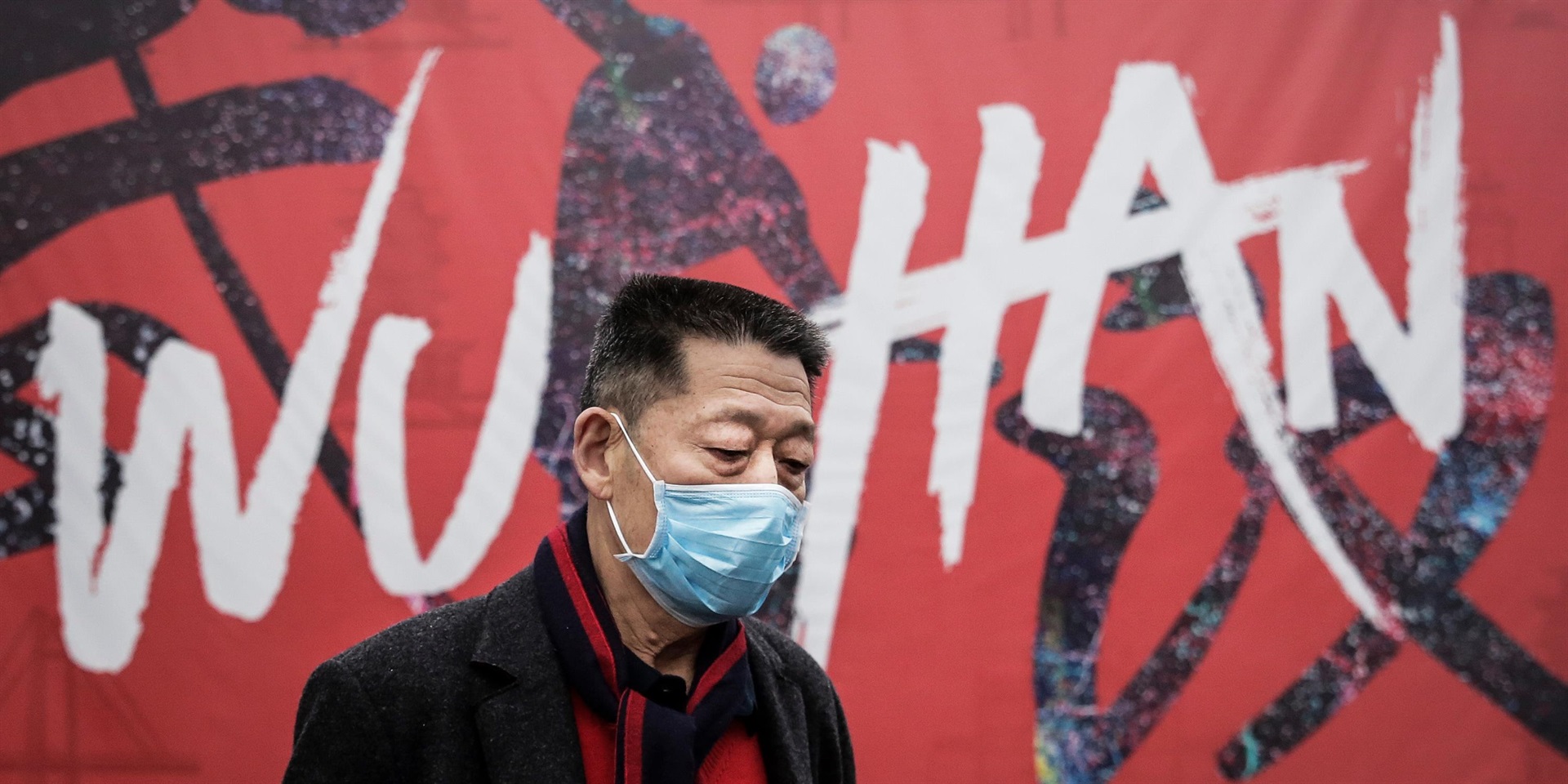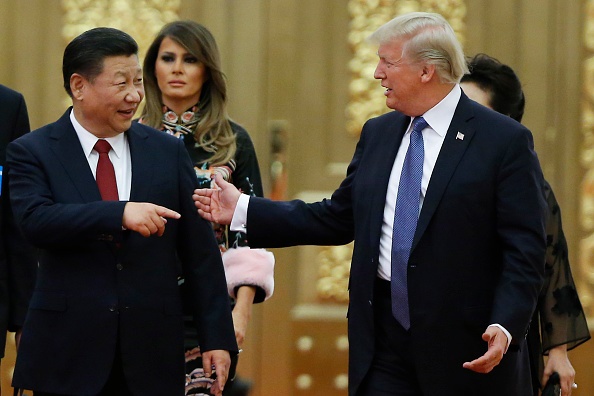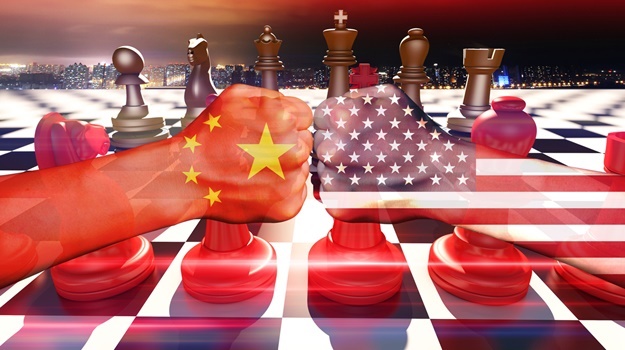
With the capacity to build a hospital in days, China is set to gain from building Africa’s crumbling healthcare system, while the Global North is searching for explanations on how the virus escaped from Wuhan, writes Ralph Mathekga.
In one of the media updates on the spread of the coronavirus, the World Health Organisation's (WHO) director-general, Dr Tedros Adhanom Ghebreyesus, said the "antidote for Covid-19 is international solidarity and national unity".
These are the two attributes of societies that have suffered significantly since the outbreak of the coronavirus a few months ago.
Due to the aggressive way the pandemic spread around the world, countries understandably reacted in varying ways; desperately scrambling to protect their homeland while watching from a distance how their counterparts were responding to the same challenges.
The way in which countries across the world responded to the outbreak of the pandemic did not indicate a sense of global solidarity in terms of the approach.
The response lacked the character of global solidarity; it was every country for itself.
Even with the WHO leading the global health response, the responses to the pandemic have been severely disjointed and lacked a sense of global coherence both in terms of implementation and character.
This could be because the virus was spreading in a cascading way, with countries experiencing infection peaks and points of crisis at different times.
Some of them experienced the spread of the virus earlier and had to reach what is considered the peak infection point much earlier than others.
This has resulted in some countries having to craft their individual national responses on their own before others could wake up to the reality that the virus would spread all over.
When countries were battling the first wave of the outbreak, others were ignoring the warning lights.
This has led to a disjointed global response to the coronavirus.
To further indicate a lack of global solidarity in response it, the only global structure responsible for leading in a moment such as this, the WHO, has been criticised for the way it handled information about the outbreak during the initial days of the outbreak in Wuhan.
US President Donald Trump has criticised it, claiming the organisation was complicit in aiding China to cover up critical information about the nature of the virus after the outbreak.
The US economic war with China has come into sharper focus and questions are being asked as to how the virus was able to spread across the world so aggressively when in all likelihood it should have been contained in the area of the outbreak.
China is facing an economic backlash by those who believe the country should not gain from the negative impact of the coronavirus on the global economy.
For example, some in the European Union bloc have expressed sentiments that Chinese companies should not be allowed to acquire stranded European assets and companies.
In some reports, governments have been urged to buy local stranded assets before China gobbles them up at less than discounted prices.
If global solidarity was weak before the outbreak of the coronavirus, it will most likely worsen in the future.
The shift in the global power balance between the US and China will certainly affect how countries on the African continent go about rebuilding their societies in the post-crisis dispensation, which will be a difficult period for African countries.
The suspicion from countries in the north is that China would most likely emerge stronger from the virus.
This has been viewed not only as unfair by others, but also as immoral given the suspicion that China was less than forthright in communicating the state of the virus in the earlier days of the outbreak.
African leaders including President Cyril Ramaphosa have defended the WHO's leadership thus far.
Questions linger. Did China use the WHO to cover up details about the virus?
The US is pursuing this idea and yet African countries are not interested in hearing them. What matters the most now is how countries respond to the guidelines set out by the WHO.
The US unfortunately has not responded well, and the White House wants to blame China and the WHO.
Other countries are having none of this not because it is not a plausible explanation, rather because it is raised by a president who has poorly prepared his country in its response to the crisis.
The support that African countries have shown to China is not without controversy.
Most are unable to break rank with China.
Further, as China is defending itself against the US onslaught, some African countries are receiving medical deliveries from China and other forms of technical assistance on how to fight the spread of the virus.
Since the outbreak, China has become a symbol of showing it has an effective state capacity.
The coronavirus will certainly allow it to cement its economic hold on weak African states, characterised by patronage and a lack of policy focus.
China has influenced how African countries responded to the virus from the beginning, with some countries adopting hard lockdown measures that were adopted in China and other Asian countries.
African countries had to wait for an OK from China before their citizens could be repatriated from Wuhan.
Namibia and South Africa are among the countries that have had their citizens in China flooding social media in the earlier days, pleading with them about the seriousness of the virus in Wuhan.
Before adopting its own lockdown rules, Pretoria had earlier rejected calls from citizens who were in Wuhan - of course until Beijing indicated it would sign release forms for those citizens to return home.
This is an indication of how African countries are influenced by China's cheque-book diplomacy.
With the capacity to build a hospital in days, China is set to gain from building Africa's crumbling healthcare system, while the Global North is searching for explanations on how the virus escaped Wuhan.
How does China's increasing global influence affect democracies on the African continent?
Its diplomacy works better in a weak state, where there are fewer questions asked.
African states admire the effectiveness of China, or the Chinese Model.
But this is the model that has come to dominate the approach to coronavirus management in South Africa; a non-consultative approach whereby everyone should follow the rules because the government says so.
The challenges faced by African nations that aspire to open democracy is that, political leaders on the continent will most likely also learn bad lessons from China, for example how to effectively monitor the nation and control its movements all the time.
The Global North with their contributions to democracy will decline in their influence on the African continent.
One certainty is that the bigger battle is between the Global North and China as to who ends up with the bigger slice when it comes to investing and building as part of the post-crisis reconstruction of Africa's health systems.
China is already one step ahead.
- Dr Ralph Mathekga is a political analyst and author of When Zuma Goes and Ramaphosa's Turn.




 Publications
Publications
 Partners
Partners

























